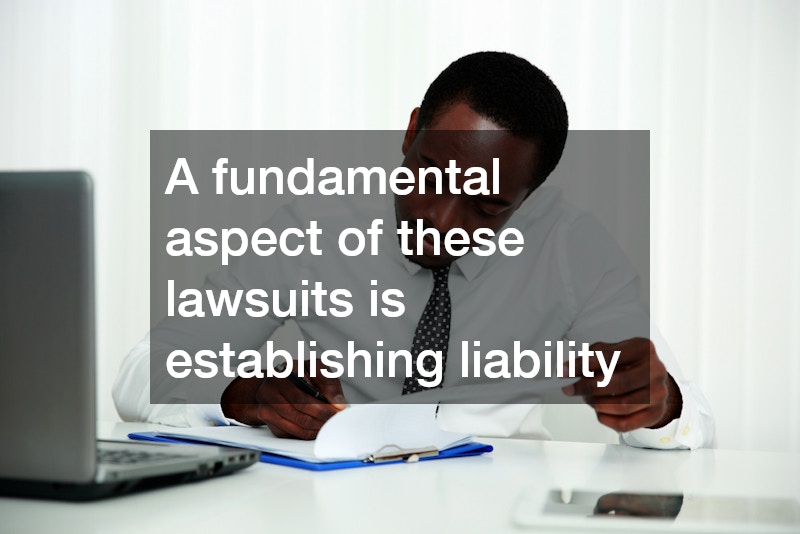
Explore the fundamental aspects of filing a lawsuit with insights from local personal injury lawyers. Personal injury law serves as a cornerstone of the legal system, designed to protect individuals who have suffered harm due to the negligence or wrongdoing of others. Whether the injury arises from a car accident, a slip and fall, medical malpractice, or a defective product, personal injury law provides a framework for victims to seek compensation for their losses.
This area of law balances accountability and fairness, ensuring that responsible parties are held liable while helping injured individuals recover financially and emotionally. Understanding the basics of personal injury law is essential for anyone navigating the aftermath of an accident, as it sheds light on rights, responsibilities, and the process of pursuing justice.
What Is a Personal Injury Lawsuit?
A personal injury lawsuit is a legal action initiated by an individual who claims to have sustained harm due to the negligence or wrongful actions of another party. Personal injury lawsuits typically arise from various incidents, including car accidents, slip and falls, medical malpractice, and workplace injuries. In these cases, the injured party seeks compensation for damages resulting from the incident. A fundamental aspect of these lawsuits is establishing liability, which entails proving that the other party’s negligence caused the injuries suffered.
It is essential for claimants to understand the difference between criminal cases and civil cases when it comes to personal injury lawsuits. Personal injury law falls under civil law, which means that the focus is on compensating the injured party rather than punishing the wrongdoer. This distinction can significantly affect the litigation process and the expectations of the involved parties.
How Do You Know If You Have a Case?
Determining whether you have a viable case involves evaluating the circumstances surrounding your injury. One of the first steps in evaluating a potential personal injury case is to consider whether there was negligence involved. This often means assessing whether another party acted in a manner that a reasonable person would not have, leading to your injuries. Consulting with a personal injury lawyer can provide valuable insights into these considerations.
In addition to establishing negligence, it is crucial to gather evidence to support your claim. This can include medical records, witness statements, accident reports, and photographs of the incident scene. An experienced personal injury lawyer can help you identify the necessary documentation and build a compelling case to support your claim.
What Is the Process of Filing a Lawsuit?
The lawsuit filing process can be complex and involves several steps. The first step in filing a lawsuit is to formally submit a complaint to the court. This legal document outlines your allegations against the opposing party and specifies the damages you seek. Upon filing the complaint, the defendant must be served with the legal papers, and they typically have a limited time frame to respond.
Once the initial paperwork is complete, the discovery phase begins. Discovery is the process where both parties exchange information relevant to the case, including documents, interrogatories, and depositions. This phase is essential for building your case and understanding the opposing party’s arguments, and it can take several months or longer, depending on the complexity of the case.
What Compensation Can You Expect?
Compensation in personal injury lawsuits varies based on several factors, including the nature of the case and the extent of the injuries. Compensation in personal injury cases can include both economic and non-economic damages. Economic damages cover tangible expenses, such as medical bills, lost wages, and property damage, while non-economic damages compensate for intangible losses, such as pain and suffering and emotional distress. Understanding these two categories is crucial for establishing the full extent of your claim.
The amount of compensation you can expect will depend significantly on the specifics of your case. Factors such as the severity of the injuries, the level of negligence, and any applicable insurance coverages will play a role in the final settlement or judgment. Consulting a local personal injury lawyer can help clarify what compensation might be reasonable for your situation.
How Long Does a Lawsuit Take?
The timeline for a lawsuit can differ considerably based on various factors such as case complexity and court schedules. The duration of a personal injury lawsuit can range from a few months to several years. Simple cases, often solvable through negotiation, may settle quickly, whereas more complex cases involving extensive discovery and multiple parties could extend the timeline significantly. Factors influencing a case’s duration can include the availability of evidence and the court’s schedule.
Additionally, settlement negotiations can also impact how long a lawsuit takes. Many personal injury cases are resolved before reaching trial, as parties often come to an agreement through mediation or settlement discussions. However, if a fair settlement cannot be reached, the case may proceed to trial, which can add months or years to the overall timeline.
Understanding the basics of a lawsuit can help you navigate the complexities of personal injury claims. Whether you choose to pursue legal action or simply want to learn more, consulting with a local personal injury lawyer will provide the guidance you need. Their expertise can illuminate the nuances of your situation and empower you to make informed decisions.



